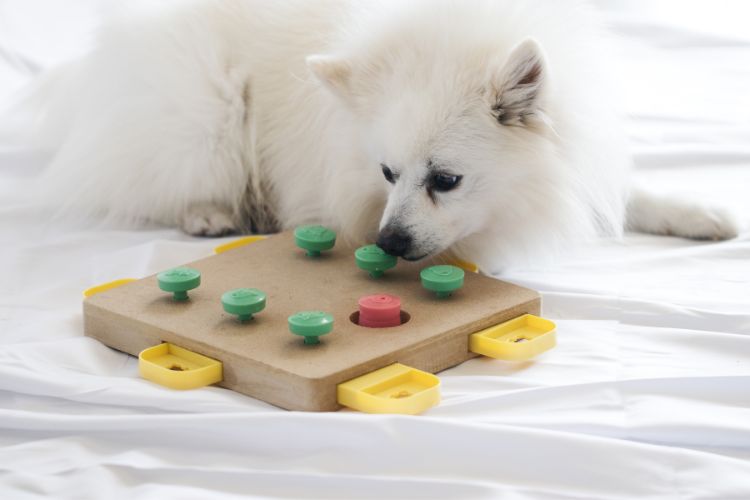Your ability to successfully navigate daily life should be used to gauge your intellect if learning is meant to help you live a more fulfilling life. But for a variety of reasons, individuals desire the ability to measure total intelligence.
Most contemporary psychologists concur that there are at least two distinct types of intelligence:
- Fluid Intelligence: The ability to think both logically and abstractly. This means you can remember how things are related when solving a problem and preserve any pertinent knowledge in your memory.
- Crystallized intellect: Your collection of information about how the world functions and the mental constructs you’ve developed due to your experiences.
Measuring Intelligence Using Various Intelligence Models

In the past, scientists have had difficulty creating an impartial intelligence assessment.
Various psychological theories expand upon the various branches of intelligence.
One such is Howard Gardner’s paradigm, which identifies eight categories of intelligence:
- Logical-Mathematical: Critical, abstract, and mathematical reasoning
- Spatial: The capacity to mentally see objects and assess three-dimensional spaces
- Language: Words and expression
- Kinesthetic: Control of the body
- Music: Melodies, rhythms, and noises
- Interpersonal: The capacity to recognize and work with people’s mental and emotional states
- Intrapersonal: Self-awareness and the capacity to evaluate your skills and knowledge with accuracy
- Naturalistic: The capacity to relate to one’s natural surroundings (such as a hunter or gardener does)
Robert J. Sternberg’s three categories of intellect are another illustration:
- Analytical: Addressing the issues you encounter on an academic test
- Creative: Using your knowledge to think creatively and develop fresh ideas and solutions
- Practical: Utilizing fresh concepts and solutions in a variety of real-world situations (street smarts)
Children in Kenya were the subjects of a study by Sternberg that evaluated both their analytical and practical knowledge of herbal remedies, which would be useful to them in their daily lives and at school. For example, children more knowledgeable about herbal remedies typically did poorly in school and vice versa.
However, Sternberg concluded that whether a child’s family valued and stressed practical or academic (analytical) knowledge made a difference.
Two key conclusions from Sternberg’s research on conventional I.Q. testing are as follows:
- They don’t take environmental variations into account. A student’s lack of exposure to or assistance in a particular field doesn’t indicate a lack of aptitude.
- They gauge participants’ knowledge at the time of the test. People learn throughout their lives, and intelligence tests reveal nothing about a person’s capacity for or likelihood to continue learning.
A Glimpse into Sternberg’s Dynamic Testing
Sternberg and Elena Grigorenko created dynamic testing to address the drawbacks of conventional tests. People constantly learn new skills and increase their level of competence. Dynamic testing takes this idea into account and helps to promote continuous progress.

Dynamic testing is a multistep procedure that includes testing to determine your level of proficiency. Doubling down on your efforts to improve in areas where you didn’t do well on the test, retesting to gauge progress, and repeating the procedure.
Low test scores are seen differently by dynamic testing, which views them as areas that simply require more attention. Additionally, dynamic assessment rather than historical learning is a stronger measure of students’ learning capacity.
You’re Not Your IQ

The I.Q. test, which assesses verbal and intellectual aptitude, is frequently used to determine intelligence.
Your I.Q. isn’t predetermined, as many people believe. Improvements in nutrition, education, and culture have likely contributed to an increase in the average I.Q. of Americans throughout time.
The following factors have an impact on I.Q. scores:
- Genes
- Environment: A modest genetic advantage can be amplified in a setting that encourages learning. For instance, if two children have comparable intellect levels, but one comes from a household with a home library and attends a school with a wide variety of programs and clubs, her learning will be fostered, and her I.Q. will increase enormously.
- Socioeconomic standing: Parents in more affluent homes are more likely to hold employment that provides them with resources to assist their children’s learning and have higher levels of education.
- Nutrition: Specific vitamins and nutrients enhance brain health and learning capacity. Fatty acids specifically support the growth of new synapses and nerve cells. According to studies, newborns exposed to fatty acid supplements directly or through their pregnant or nursing moms had I.Q. scores ranging from 3.5 to 6.5 points higher.
Can Fluid Intelligence Be Improved?
I.Q. rates include both flexible and crystalline intelligence. The techniques we’ve covered, like regular and spaced retrieval exercises, help you develop crystallized intelligence and more efficiently acquire your target language.
But research hasn’t demonstrated that you can develop your fluid intelligence.

A crucial component of fluid intelligence is working memory, which brain-training games, movies, and exercises try to enhance.
For example, a 2008 Swiss study had participants retain two distinct types of information: a number sequence and the location of a small light.
Participants had to retain this information for progressively longer intervals while viewing other lights and number sequences. This serves as the foundation for many brain-training techniques today.
By the end of the experiment, every participant had made progress on this activity, with the biggest advances going to those who had practiced it the most.
For the first time, research made the case that individuals may enhance their fluid intelligence. The study, however, had several flaws:
- Because the participants had only one task to complete, it is hard to determine whether they improved their working memory or just performed better on this particular activity. A competent pianist’s increased skill on the keys has no bearing on her talent when crocheting a scarf, illustrating that improving one talent doesn’t affect other skills.
- There is no information on how long the improvement lasted.
- The sample size (35 participants) was modest and antiethnic.
- The findings haven’t been reproduced in any other experiment.
The study’s participants may not have truly increased their fluid intelligence. Still, they departed with the impression that their mental strength had increased. Higher confidence did correlate with stronger perseverance, but this effect was only what the participants perceived.
In other words, the participants will have a higher likelihood of succeeding when they face a challenge—not because their mental faculties have improved, but rather because their confidence will motivate them to work harder to find a solution.







